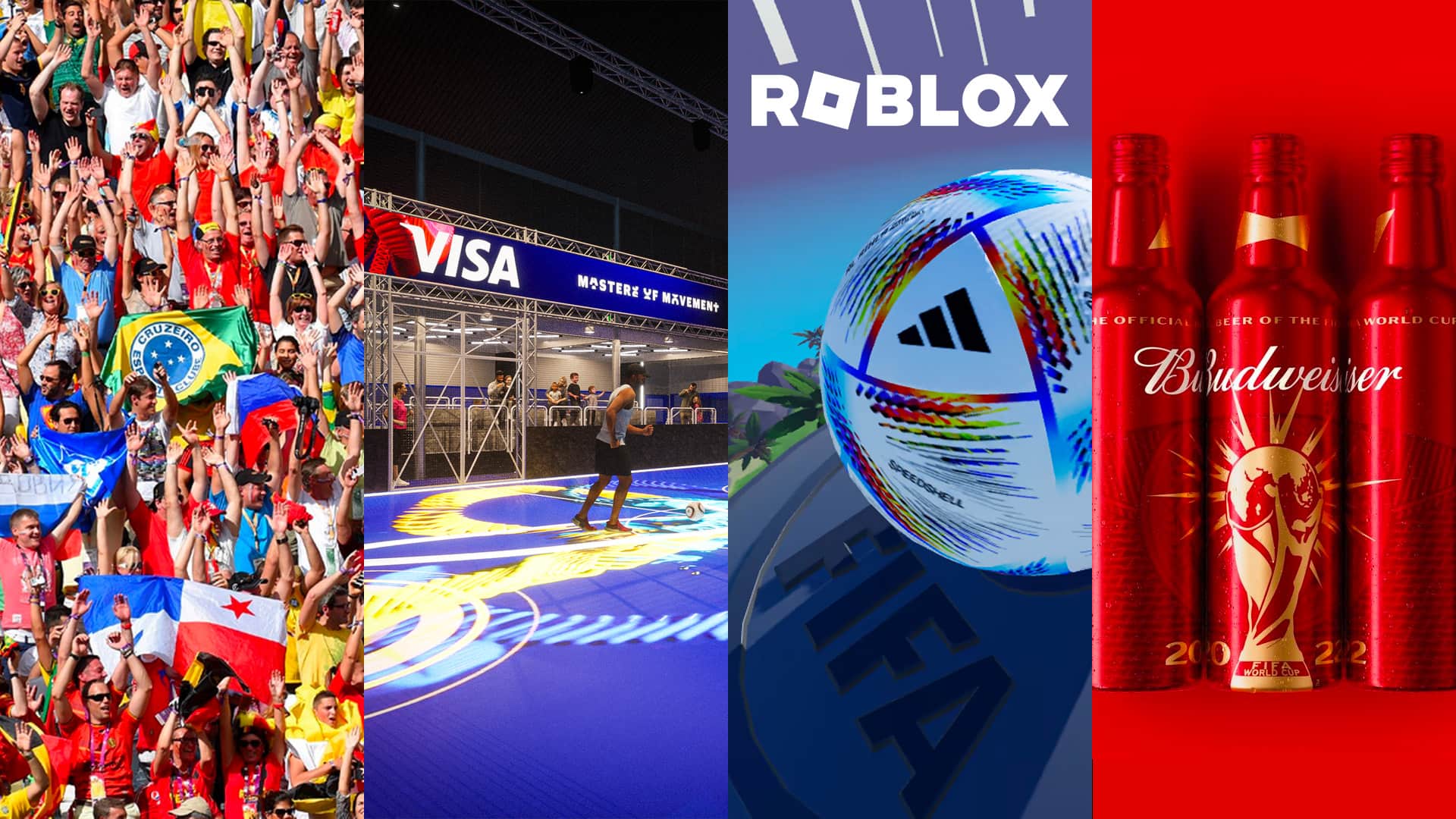There has been considerable controversy surrounding the 2022 Qatar FIFA World Cup. Despite this, the tournament is forecast to deliver record revenue, topping the $5.4bn generated during the 2018 instalment. A considerable portion of this revenue will be generated via sponsorship, with a mix of established global brands (e.g. Coca-Cola) and high-growth digital businesses (e.g. Roblox) deciding that the positive benefits of World Cup sponsorship outweigh the negatives.
As kick-off fast approaches, here are 4 key reasons why FIFA World Cup sponsorship is so valuable to brands:
1) A Global Brand Building Platform To Reach The World Cup’s 3.5bn Audience
The World Cup is the biggest sports competition in the world with a massive viewership. A reported audience of 3.5bn watched the 2018 World Cup tournament (approx. half of the world’s population), with viewership dwarfing other leading sports competitions.
A partnership with FIFA offers an extremely exclusive marketing platform, with the football governing body’s three-tiered partnership structure (below), ensuring that FIFA world cup sponsors are limited and increasingly lucrative to those who attain them.
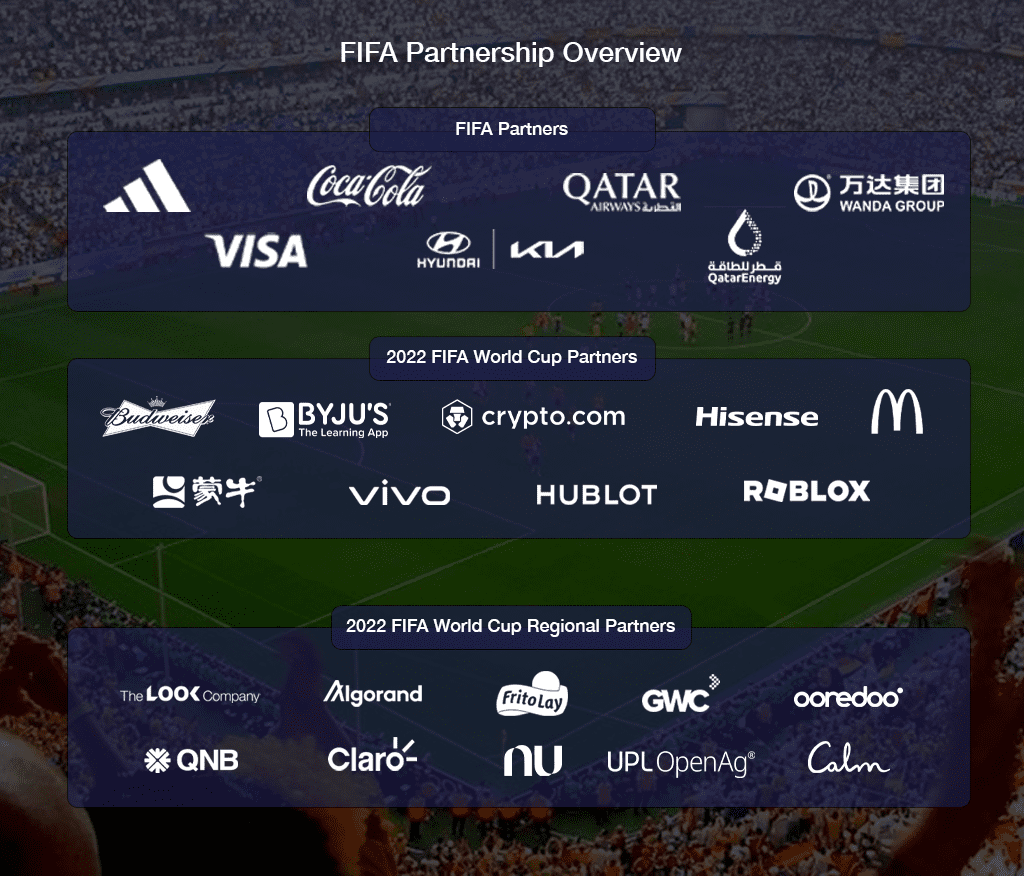
This refined portfolio offers partners a huge share of voice throughout the tournament’s duration, driving huge global brand awareness – in terms of both reach and frequency – via branding on LED perimeter advertising and pre/post-game on interview backdrops at 64 games, played over a 29-day period. Check out our post on FIFA world cup marketing for more depth on a number of key sponsors.
As the most-watched sporting event on the planet, sponsors can also own the conversation in the lead-up to the tournament, using official FIFA IP to enhance marketing campaigns. See Coca-Cola’s ‘Believing is Magic’ campaign, as an example of this multi-channel approach at work.
2) Premium & Iconic IP To Drive Brand Credibility
The FIFA World Cup is one of the world’s most recognised and admired sporting tournaments with a history of iconic moments that transcend sport and maintain huge cultural significance. As an official World Cup sponsor, brands can leverage world cup marketing to enhance communications campaigns via the use of World Cup IP, including the famous FIFA World Cup trophy, driving more engagement with fans pre, during and post-tournament.
The build-up to Qatar 2022 has seen brands take advantage of their affiliation, with partners even joining together to run dual promotional campaigns in order to elevate the fan experience, e.g. Visa & Crypto.com. In the lead up to the tournament, fans have the opportunity to create their own NFTs, as well as bid on Visa’s limited edition ‘Masters of Movement NFTs’ on Crypto.com, with the NFT’s based on 5 iconic World Cup goals. All proceeds from this initiative will be donated to the Street Child United charity, highlighting how World Cup sponsorship can also be used to elevate CSR efforts.
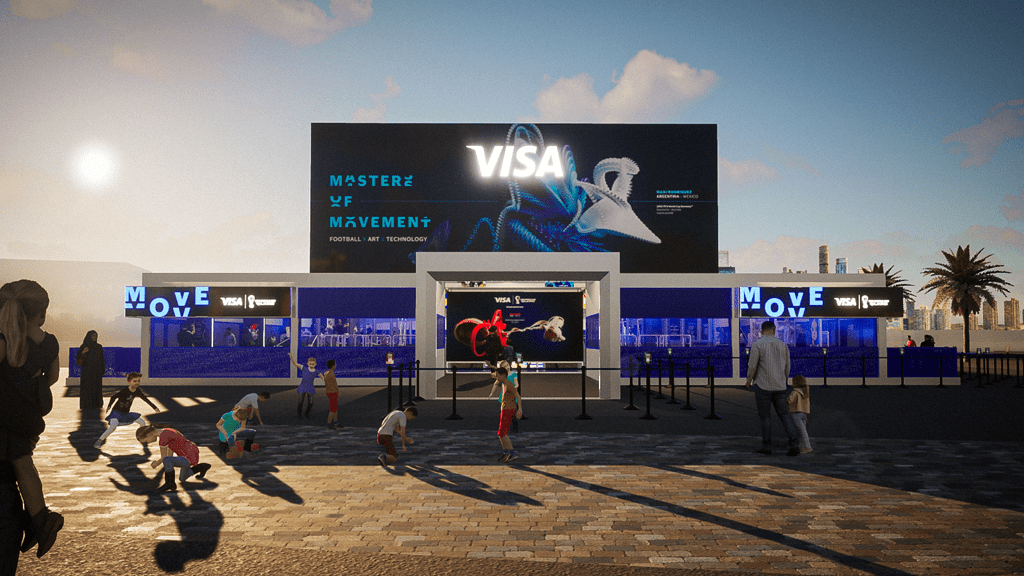
3) World Cup Marketing Delivers Huge Online Presence for Digital Brand Campaigns
Over the past decade, digital has become a key aspect for sponsors to maintain heightened awareness levels beyond match days. The athletes at the World Cup are some of the most followed people on the planet (e.g. Portugal’s Cristiano Ronaldo is the most followed person on Instagram with 490m+ followers), while FIFA’s official social media accounts have 100m followers across Instagram, Facebook and Twitter.
Throughout the duration of the tournament, social media is abuzz with World Cup talk and
engagement. In 2014, Twitter reported 619,000 tweets per minute in the aftermath of the final between Germany and Argentina, taking the total number of tweets from the tournament to 672m.
This digital emphasis has been elevated ahead of the 2022 tournament, in line with the emergence of web 3.0 and the metaverse. In October, FIFA announced a long-term partnership with Roblox, a leading global gaming platform, with the aim to deliver immersive football gaming opportunities for fans. This includes FIFA World, a virtual environment in which Roblox’s 200m users can socialise, earn rewards and collect exclusive FIFA-themed virtual items.
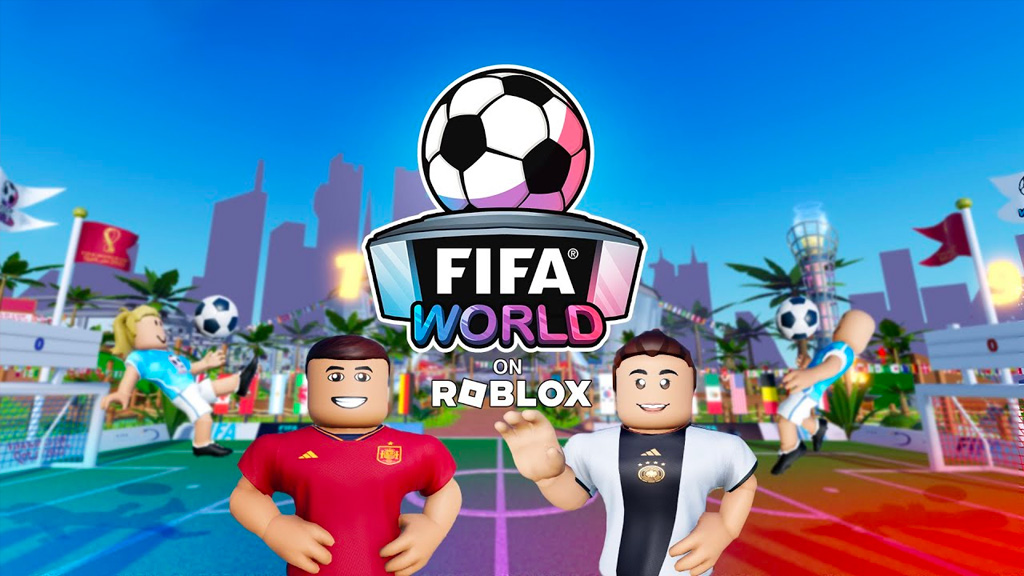
4) Unique Product Integration Opportunities to Introduce Product to New Audiences
Awareness can be heightened further via tactical product integrations that make partners’ products a key part of the World Cup fan experience.
Since 2007, Visa has been FIFA’s Official Payment Services Partner. Through this collaboration, Visa payment cards are the exclusive payment method accepted by FIFA for ticket purchases made in Qatar, and the preferred payment method worldwide, increasing credit card transactions substantially with ticket sales for the tournament surpassing 3m.
With product integration in mind, the 2022 World Cup has thrown up some complex issues for FIFA to work around, namely regarding Qatar’s tight regulations around alcohol consumption. With a zero tolerance policy toward public drinking, the country has eased restrictions to accommodate Budweiser, the Official Beer of the World Cup, ensuring the beer can be sold pre and post match within stadium concourses, as well as in official fan parks. As a result, the brand expects to sell more beer during the 4-week tournament than it would typically sell in an entire year in Qatar, according to Peter Kraemer, AB InBev’s Chief Supply Officer.
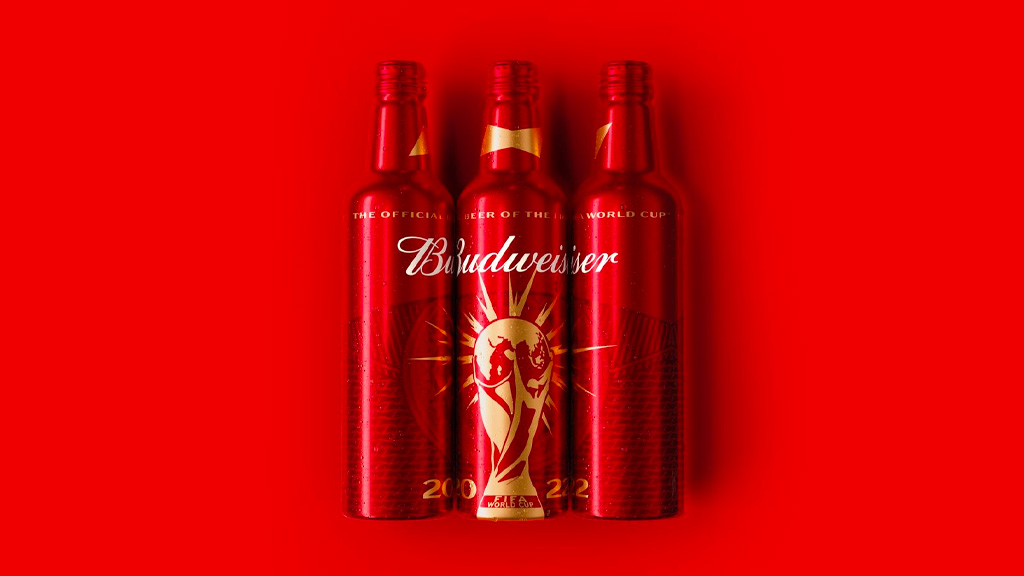
For more information on football sponsorship and the benefits it can drive for your brand, contact the team at [email protected].

